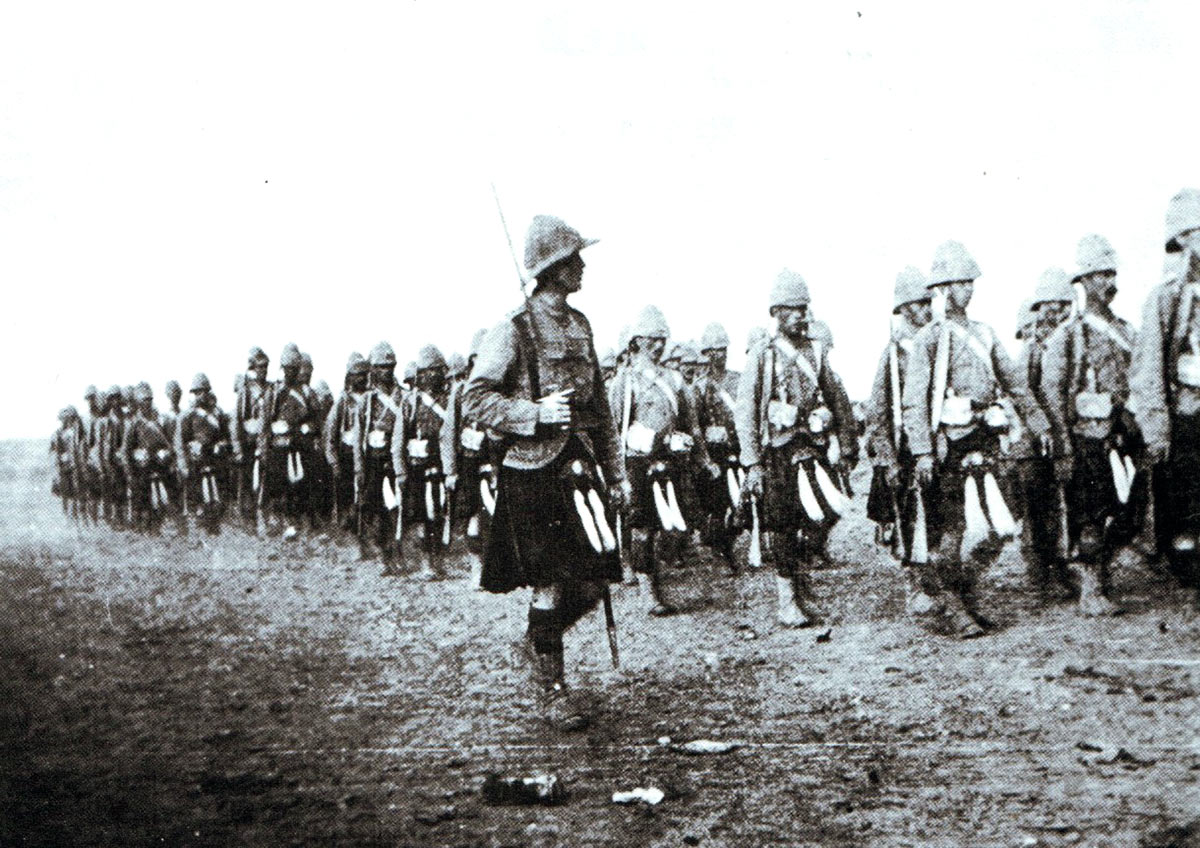 |
| Sudan under British Rule |
After the area of present day Sudan was conquered by Muhammad Ali of Egypt in the 1820s, Great Britain began to exert pressure on Egypt to halt the flourishing slave trade that was prevalent in the area. Strong resistance arose among the Sudanese, who had grown wealthy and powerful from the slave trade. They harassed the Egyptian officials who administered the Sudan until 1883.
The British became more involved both due to fears of French expansionism in the area and after the massacre of British troops under General Charles Gordon in 1885 by followers of the Mahdi. Great Britain viewed its interests in Egypt to be under threat and set about to uproot the Mahdist regime.
British forces under General (Lord) Horatio Herbert Kitchener concocted a plan to rout the Mahdist forces in the Sudan and bring the Sudan under joint Egyptian and British control in response to French aggression in Fashoda. By September of 1898, the British forces had uprooted the Mahdist regime and stopped the French march.
  |
In 1899 the Anglo-British condominium was established, stating that England and Egypt would jointly administer the Sudan. In reality, British officials and Egyptian officials selected by the British administered the Sudan. The British dominated the condominium and crushed many small uprisings throughout the country.
Lord Kitchener became the first governor-general of the Sudan and was followed by his former aide, Sir Reginald Wingate
Railway, telegraph, and steamer services were expanded, although they were heavily dependent on Egyptian subsidies. In 1902 the Gordon Memorial College was founded, which produced a highly educated Sudanese class.
However, this new class was not able to find positions in the government, nor were they able to function within the traditional Sudanese society. Frustrated and disillusioned, it is from this class that Sudanese nationalism was born.
These educated Sudanese nationalists were encouraged and assisted by their Egyptian counterparts, who also sought to rid themselves of British control. In 1921 a Gordon Memorial College graduate, 'Abd al-Latif, formed the United Tribes Society and was arrested by the British.
After his release he formed the White Flag League in 1924 with the specific goal of pushing the British out of the Sudan. Demonstrations in Khartoum followed in the summer of 1924 but were ruthlessly suppressed by the British. On November 19, 1924, the British governor-general of the Sudan, Sir Lee Stack, was assassinated in Cairo.
The British, suspicious that the Egyptians provoked unrest in the Sudan, forced the Egyptians to withdraw from the area. A Sudanese battalion rallied to support the Egyptians but was wiped out by the British. This ended the revolt, and the British ruled the Sudan alone until 1936.
In 1936 Britain and Egypt reached a semi-agreement that allowed the Egyptians to return and once again administer the Sudan jointly. The newly educated class of Sudanese were angered that they were still not involved in the administration of their country and publicly expressed their discontent through the Graduates' General Congress, a Gordon Memorial College alumni association.
The congress split into two factions, a moderate and radical branch. The radical faction was led by Isma'il al-Azhari and actively sought Egyptian help in expelling the British. In 1943 al-Azhari's faction was in full control of the congress and organized the Ashiqqa' Party, the first Sudanese political party.
They were opposed by another party formed under Sayyid 'Abd al-Rahman al-Mahdi, the son of the Mahdi. His party, the Ummah Party, used his father's reputation and following to gather a strong base. Both the Ashiqqa' Party and the Ummah Party sought to unify other minority groups under their respective banners.
Sayyid 'Ali al-Margahani of the Khatmiyyah Brotherhood supported al-Azhari's party, both factions uniting under the umbrella National Unionist Party in 1951. The rivalry between al-Azhari's party and the Mahdist party would affect politics for years, even after British domination in the region ended.
The British, aware of Sudanese nationalistic aspirations, attempted to incorporate some Sudanese into the government. They established an advisory board for Northern Sudan led by a governor-general and 28 Sudanese, but this was not a legislative body. The Sudanese agitated for more power and for the inclusion of Southern Sudan in the legislative body.
Under the British administration, the Christian and animist sects of the south had been ruled and administered separately from the Muslim Arab sects of the north. This division would prove fatal when the British established a legislative body (under pressure) that encompassed all of the Sudan, north and south, in 1947.
This move angered the Egyptians, who then threw out the Anglo-Egyptian Treaty of 1936 and proclaimed sole Egyptian rule over the Sudan. The Sudanese agitated until the Egyptian revolution in 1952 under Gamal Abdel Nasser prompted both the Egyptians and the British to sign an agreement granting the Sudanese self-determination within three years. Elections followed in 1953, and al-Azhari's National Union Party won the majority. Al-Azhari declared the Sudan an independent republic on January 1, 1956.